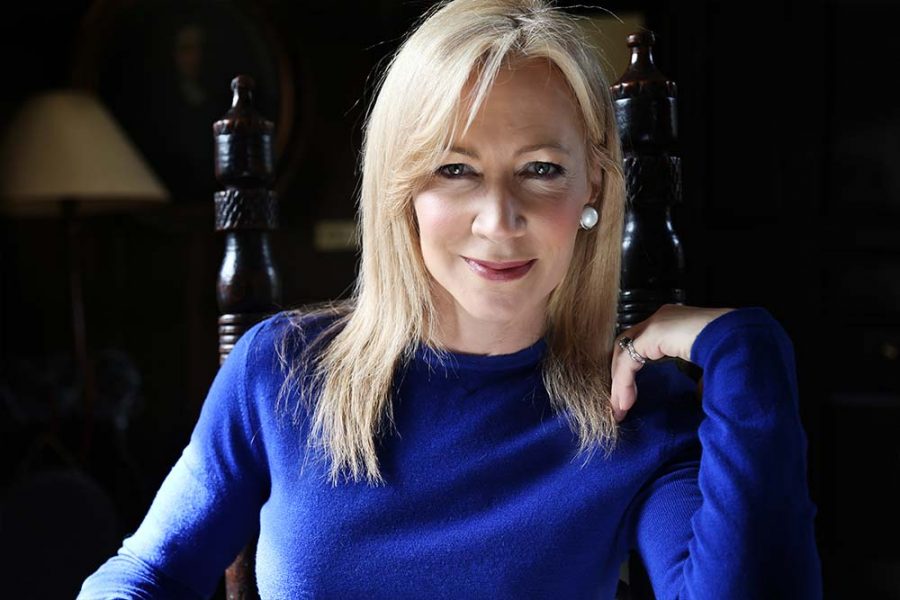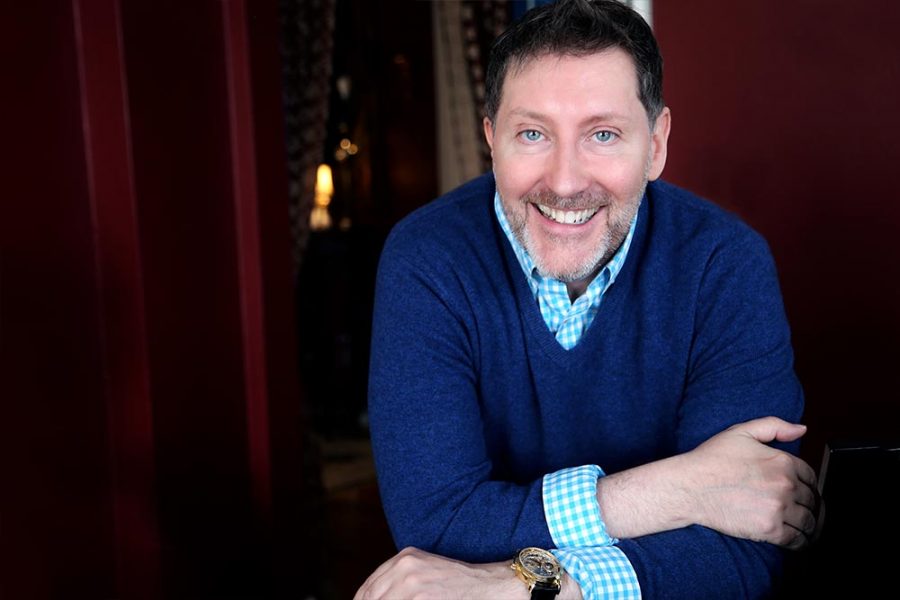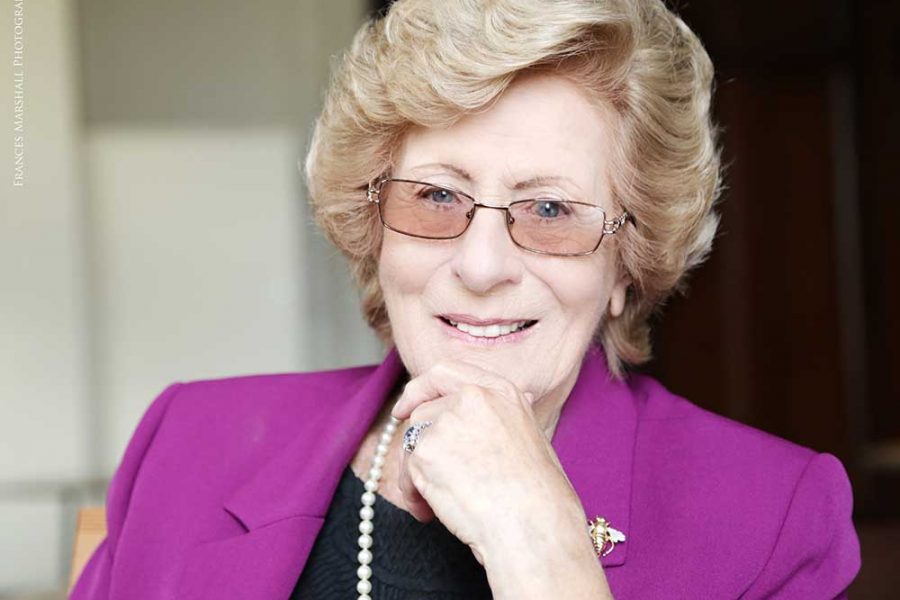Directing the Future: Deborah Kelleher

April 2015
Words by
Emer Nestor
Photos by
Frances Marshall
As director of the Royal Irish Academy of Music, Deborah Kelleher is a leading ambassador of the performing arts and music education in Ireland. An admirable sense of dynamism and unwavering commitment to excellence edifies her role as the Academy’s International Relations Coordinator.
Deborah is a board member of both the Dublin International Piano Competition, and the Arts Council’s Peer Review Panel. She was an instrumental figure in the recently established historic partnership between Trinity College Dublin and the RIAM. Deborah gives Final Note a glimpse into her busy world as she chats about her passion for Classical Music, and the role of the RIAM within Ireland’s evolving cultural landscape.
I was seven, and I have been truly gripped by classical music ever since."

When did you first know that you wanted to be part of the world of Classical Music?
I asked my mother if I could have piano lessons when I saw my sisters being trained. I was seven, and I have been truly gripped by classical music ever since.
Who did you study with as a child?
I studied with Ann and Frank Heneghan in the College of Music. This was an intensive training regime from a young age, and every focus was on listening, striving for beauty of tone and service to the music.
At university were you initially attracted to performance or academia, or both?
By the time I reached university I had probably reached my peak as a solo pianist — I was certainly never as committed to practicing solo piano repertoire once I left my teens. I studied in Trinity College, Dublin and my pure music degree fit me like a glove. Unlocking musical understanding through analysis was something new and challenging. I decided to continue with a Masters degree in Musicology in University College Dublin to deepen my appreciation of music through academic study.
Did your Masters in Business Administration from Dublin City University prepare you for your role today as Director of the RIAM?
I deliberately chose the MBA to make a transition from being a music professional to someone who was also trained in managing people, in strategic planning and in understanding finance and marketing. I loved the programme, and I use the MBA tools on a daily basis. I am inclined to think, however, that my experience in the music scene from childhood to adulthood informs the manner in which I function within my role at the RIAM.
Why did you decide to follow a career in administration?
My career in music was very varied in my 20s — I was a lecturer in UCD, a broadcaster for RTÉ, a vocal coach and a piano teacher in the DIT Conservatory of Music and Drama, and a musicianship teacher in the RIAM. I liked them all, but settled definitively on none as my main focus. The common denominator was that I loved my students and felt strongly about motivating them to be confident and to achieve their best. It became clear that a role in administration would provide me with the opportunity to have a more strategic input into the education of young musicians.
What did your appointment as Director mean to you, and what would you consider your crowning achievement so far?
Frankly, I was ecstatic to be appointed and I have never regretted a single second since. Personalizing my work in terms of ‘crowning achievements’ is not for me, but March 2015 was one for the history books. Having made extraordinary progress in one year, our Junior String Orchestra of little ones brought the house down in the National Concert Hall; Our RIAM Teaching Network online resource for private music teachers celebrated its first anniversary; we performed Suor Angelica to critical acclaim at the Peacock Theatre, and we then travelled to the Juilliard School in New York for our first joint collaboration. That month was a shared celebration of achievement at all levels, growing RIAM’s community of learning, and dreaming big.
How significant is the RIAM’s recent partnership with Trinity College, Dublin within the Irish performing and creative arts sector, and how did the initial idea come about?
The RIAM/TCD relationship is already profoundly important and we have only scratched the surface. We have already collaborated in artistic and research projects, on consultancies for international universities who wish to develop programmes based on our curricula and practices, and much more. The initial idea came about from a Government directive to institutions to form closer links within education, and we have not looked back since. The real prize for the Irish performing and creative arts sector is in our curricula of the future, currently in the design stage. The RIAM is committed to bringing a standard bearer for Irish culture and identity in classical music education. That means maintaining third level programmes for music performance and composition, in and for Ireland, which will robustly match the best internationally. I believe TCD will be a central piece in the RIAM’s evolution.

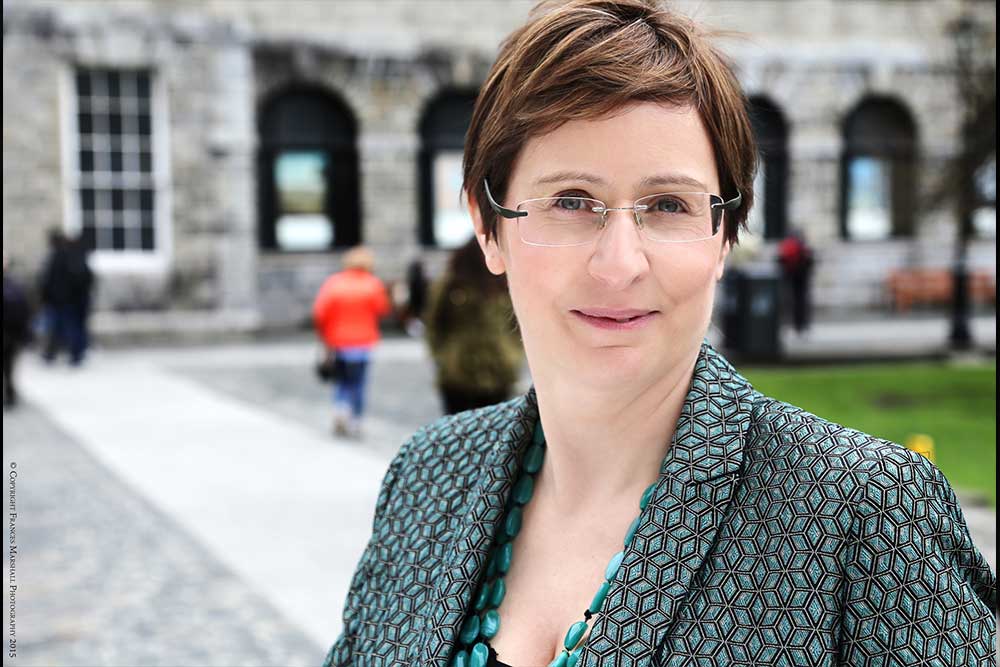


...students can focus on being excellent in the key skills related to their particular interest. This is certainly more democratic and inclusive."

Having studied and taught in Dublin’s most prestigious music faculties, where do you see third-level music education going in this country?
Recent research has provided us with valuable data on the level of preparation music students have when entering third level music in Ireland. Most are poorly prepared in terms of the foundation ‘building blocks’ of music, such as classical theory, harmony and ear training. This puts pressure on third-level institutions to make up some lost ground in the traditional subjects and still prepare students for the music profession in the same period of time. My view is that the recent segmentation of programmes at undergraduate and postgraduate level with electives in a range of specialisms can be positive, because students can focus on being excellent in the key skills related to their particular interest. This is certainly more democratic and inclusive.
However, I am a firm believer in being very confident in the core theoretical components for a career in classical music performance. In our Bachelor Degree in Vocal Studies, for instance, we take in some extraordinarily gifted natural performers and then ‘torment’ them with music theory and advanced aural training in very small classes with additional sight singing, four days a week. Why? — because some day our graduates will be challenged on an aspect of rhythm or musical nuance by a professional conductor in front of an orchestra when it really matters and they will be okay, because these musical building blocks will be in their bones. There is no ‘Bluffer’s Guide’ to the world-class music career.
As a member of the Arts Council’s Peer Review Panel, what do you look for in a successful application?
A track record of success in your professional work indicates commitment and dedication, sensible financial costings speak to the ability to plan and deliver, and a compelling idea separates the ‘must supports’ from the ‘should supports’.
How did your nomination to the RTÉ Board last year come about, and what does the role involve?
I was contacted by the Minister for Communications and agreed to allow my name to go forward for nomination. The role consists of attending monthly meetings, and a lot of contact with the Director General and his team for presentations and reviews. I am also part of the Programme Committee. There is also quite a bit of research and reading around the subject, but it is fascinating and important work.
With so much of your time divided between various projects and responsibilities, do you get the opportunity to perform much?
Not at all!…only in the RIAM during musical emergencies! I don’t miss performing because I hear so much music. I must admit, I recently performed for Senior Song Class because their accompanist was delayed, and I had a right rattle at Mahler’s ‘Um Mitternacht’, which brought back some fond memories — a gratifyingly high-octane end for the piano, in that song.
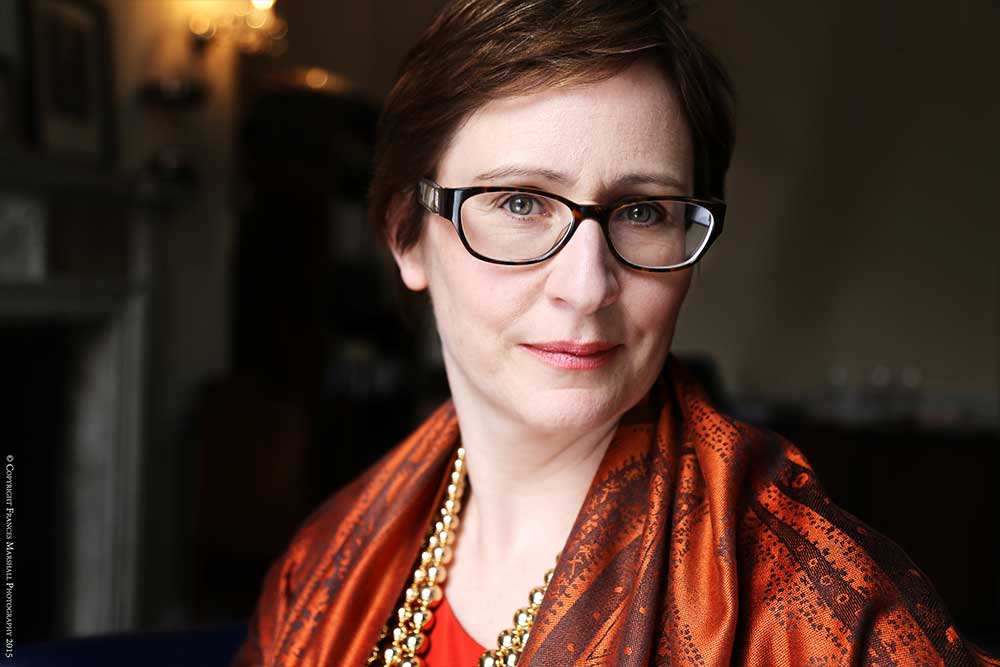


Do you miss teaching, or do you still manage to fit a few hours in here and there?
I teach a first-year history class and also a junior theory class. I think it is important to have some level of contact on a practical level with the students, and first year is ideal. I will really know them after that. The junior theory class is an anchor, because it reminds me that the RIAM started with the juniors, and they are integral to the Irish conservatoire system.
What does a typical day in your busy life involve?
I bring my son to play school, and then take the DART to work. Every day is different and I do travel a fair bit. In general, most of my day is taken up with meetings — students, faculty, finance, administration, board members, development, artistic planning. E mails, reports and research take place in the evenings when I have a little time to reflect.
You’re obviously a deeply ambitious individual — where do you get your energy from, and what inspires you?
I don’t think I am ambitious, but I have a strong sense of duty, so I won’t stop until the job is done. I definitely get this from my mother, Deirdre, and she more than anyone inspires me. She ran the Feis Ceoil for many years and her tenure was fascinating to me — she was a motherly and supportive Director, but could be fairly tough when required. She had high standards and expected a lot from herself.
How do you juggle family life with work commitments?
I have a fantastic husband who is very supportive, and a son who sleeps through the night. Work doesn’t exist when I am with them, but I focus 100% on the job in work. I simply don’t and won’t cook, so that saves time.
Does music play a big part in your home?
I listen to so much music outside the house that I rarely put it on at home. My son will start pre-instrumental classes next year, so I imagine that will change.
What are your thoughts on the value of Classical Music in today’s busy world?
Today’s busy world can be dangerous. Technology is developing at a rate faster than science’s ability to understand the impact it is having on the human brain. Classical-music training is about understanding the human condition, and we get to this understanding through one-to-one lessons that focus on attention to detail, deep listening, reflection and communication, setting a personal goal and reaching it. I truly mourn for those who cannot access classical-music training and wish that every child in Ireland had this experience. For that reason, the private music teacher will always have the RIAM’s support and respect, because at least 7,500 of them are out there working around Ireland, giving more students access to music making and enjoyment.
Tell us about your association with the forthcoming Dublin International Piano Competition.
I am on the Board of the Dublin International Piano Competition. This year we have 5 Irish competitors who earned their place through a separate audition process in December. The DIPC is a real shining light in the Irish music landscape. For the month of May Irish piano enthusiasts have access to over sixty wonderful pianists culminating in a Final, which is still, thankfully, televised and watched by many thousands. Ireland is on the global map in music terms through internationally benchmarked experiences such as this.
What’s the vision Deborah?
The RIAM will become a leading international music conservatoire defined by the quality of its teaching and learning, the excellence of its programmes for non-professional and professional musicians, the achievements of its graduates, the breadth of its global partnerships, and by its commitment to sharing its passion for music with the wider community. We have a strategic plan and implementation strategy to make this vision a reality, and we will achieve it because we have the credibility, ambition and energy to do so.
How do you juggle family life with work commitments?
I have a fantastic husband who is very supportive, and a son who sleeps through the night. Work doesn’t exist when I am with them, but I focus 100% on the job in work. I simply don’t and won’t cook, so that saves time.
Does music play a big part in your home?
I listen to so much music outside the house that I rarely put it on at home. My son will start pre-instrumental classes next year, so I imagine that will change.
All images displayed in this article are subject to copyright.
Share this article


